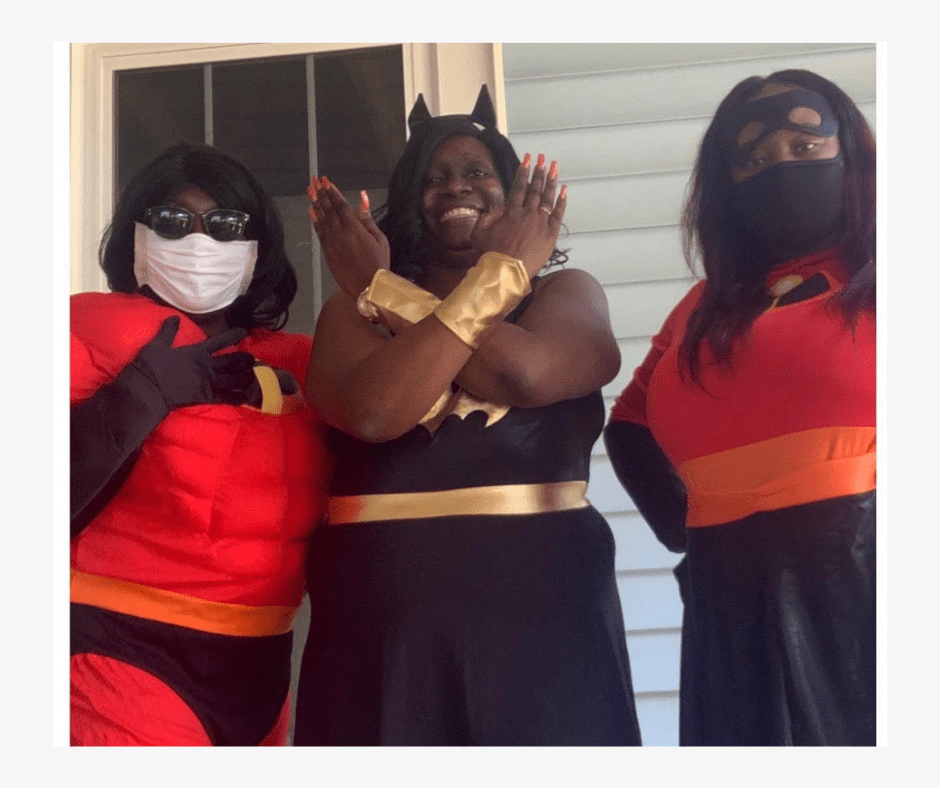This post is published in collaboration with Elizabeth Lemacks from the Cumbee Center.
When COVID-19 first struck, the primary concern that I had as a Black woman in this country and as a staff member at an Institute dedicated to violence prevention, was how the most marginalized in our communities would be impacted. Core to addressing the rates at which COVID has exacerbated violence, is to also look at the impact it has had on the needs of survivors of domestic and sexual violence. What does access to justice and services mean during this global pandemic? I posed these questions to an advocate, Elizabeth Lemacks, who has been working firsthand with survivors in her area in hopes to frame the larger discussion around how COVID has impacted survivors nationally.
Can you please explain the work your organization does and your position at your organization?
Our mission is to support and empower victims of domestic violence and sexual violence and their families, by providing services, reducing the tolerance of abuse and advocating for social change. As a case manager, my role is to meet the survivor wherever they are in the healing process. I advocate for the victim throughout the court process, including attending hearings and providing referrals for outside agencies that assist with basic needs and other survivor needs.
I’m also the coordinator for the Multi-County Sexual Assault Response Team which calls upon other professionals that may come in contact with victims of Sexual Assault and we collaborate the best practices for responding to these crimes. I also hold the title of DSS liaison for my agency and 6 counties so I am able to better collaborate with Department of Social Services to ensure our services are being utilized to best meet the needs of survivors and their families.

Do you feel that COVID-19 has had any impact on reporting rates from survivors generally? If yes, what are some ways in which this is showing up in your work and how does this compare to what you were seeing before?
I certainly feel as though COVID-19 has impacted survivor reporting. Although our caseloads have remained high, services have not slowed down, given the community’s risen crime rates it is apparent that more violence is occurring. When survivors are essentially forced to spend time quarantined in the home with their abusers, some may have lost jobs that would otherwise allow them to leave the home, children are now virtually attending school, and overall the climate of uncertainty and fear has risen. All of these factors are an unfortunate catalyst for violent situations within the home. There have been many survivors that have called the hotline, wishing to stay anonymous, just to talk and weigh out their options. It’s truly heartbreaking as an advocate to know there are so many people suffering right now and simply “leaving the situation” may not be realistic for many. If and when this pandemic subsides, I am almost certain that our caseloads will increase exponentially.
How has COVID-19 impacted your experience as a service provider?
This pandemic has tested almost every level of who I am as an advocate, for this, I’m thankful. I’ve learned to safety plan more creatively and carefully, I’ve learned to use technology more than ever before, I’ve had to really take the time and read, research and create a new way of advocating. We were working remote for about two months and during this time, our work never slowed down at all. I spent time creating a “space” which we all laughed about, but my walk-in closet became where it was most quiet and confidential. I set up a backdrop and added calming aesthetics, this was important because I was able to use programs such as Doxy to meet clients face to face and continue my work. I was able to (on my own time) start reaching more individuals on social media by making short videos that highlighted domestic violence, sexual assault and human trafficking. This allowed me to meet individuals from all over and help them find resources in their area. There are no words to describe how helpless we all felt throughout the last few months, but the amount of survivors and successes we saw and continue to see, truly keeps us going. It’s been difficult and trying, but I’ve learned so much about advocacy, for that I’m grateful and very thankful.

What are some of the needs or gaps you’re noticing that may have been exacerbated by COVID-19? What are some of the things you’re hearing from survivors in terms of what they need during this time (that you can share)?
As basic as it sounds; human connection and compassion. Sometimes survivors just need a hug or to have their hand held during Sexual Assault exams and that is something we aren’t able to do. As far as tangible “things”, many survivors need internet to continue working, school, appointments etc. There is a need for more supportive services such as transportation, medical assistance, utilities and frankly, more shelter options. Our counties are very rural and we struggle with resources when there is no pandemic so this is an issue even more so now.
In your experience, how has the pandemic impacted the ways in which survivors gain access to resources?
Our survivors are still thankfully able to gain access to all resources. We have had to become very crafty with safety planning and other ways of meeting them where they are, but we are quite thankful to still be able to offer services.
What are some of the ways in which you/your organization has adapted to this or have you been able to do so?
Technology! We have all had to take time to learn how to use many different levels of communication
Are there any learnings, best practices or recommendations that you feel are key to consider as we continue to address the needs of survivors during the pandemic? What are some of the ways in which organizations, like yours, doing this work can be further supported (i.e. research, policies, funding)?
In our area, the lack of resources and transitional programs for survivors are our biggest hurdles. Finding a way to encourage individuals to support agencies like ours is key. Money is of course very important to keep us running and keep providing services, however, basic need items are pivotal as well.
Is there anything else you’d like to share or would like us to know regarding your experience working with survivors or from your work?
I am truly grateful for the opportunity to assist victims on a daily basis. Having gone through my own history of dating violence and sexual assault, I’m able to heal through helping. Knowing that even during a pandemic, I’m able to continue assisting individuals find hope, healing and safety, is absolutely a beautiful thing. Our work is hard, it’s frustrating, we cry but we also laugh hard. We learn to find the good in every situation. I encourage individuals to get involved with their local agencies; even if it is just to donate toiletries, etc. At the end of the day, if you can reach one person through advocacy, you’ve made a difference. I’m thankful for this opportunity.

Skylar Wynn is a Senior Research Assistant at the Global Women’s Institute at the George Washington University. She received her bachelor’s degree with honors in Women’s Studies from Old Dominion University. As an undergraduate, Skylar interned with the Old Dominion University Women’s Center on campus focusing on empowerment, activism and creating a sexual assault free environment. She is passionate about addressing the unique needs of girls and girls’ empowerment and how public policy can work to addresses the factors which drive inequality affecting Black women and girls.
Elizabeth Lemacks is a native of North Augusta, South Carolina. Elizabeth earned her Bachelor of Arts in Sociology, minoring in Education, from the University of South Carolina Aiken in December of 2017. This is where she was introduced to Cumbee Center in 2016 and began her internship. After spending over a year volunteering and interning, Elizabeth was brought on as a full-time employee in the new role of Community Education and Awareness Specialist and the Sexual Assault Case Manager for Edgefield, McCormick and Saluda counties. Currently, Elizabeth happily serves as the Aiken, Edgefield, McCormick and Saluda case manager while upholding additional duties for the agency such as; DSS Liaison and the coordinator of the Multi-County Sexual Assault Response Team. In Elizabeth’s off time, she enjoys spending time with her two rescue pups: Hank and Boudreaux, fishing, and researching true crime investigations and cold cases.
Cumbee Center is a non-profit organization that services 6 counties in the state of South Carolina. Through generous donations from the community and other grants, the agency is able to assist victims and their families, free of charge with all facets of advocacy. Case Management, 24/7 hour hotline, counseling, legal advocacy and crisis advocacy, in addition to an emergency 60 day shelter allows victims to transcend into survivors and become free from abuse. You can find more information at: https://www.cumbeecenter.org/
For more information on national resources for health providers, the National Health Resource Center on Domestic Violence (HRC) created online toolkits at IPVHealth.org/covid19 (for health settings looking to improve their response to IPV) and IPVHealthPartners.org/covid19 (for community health centers working in partnership with domestic violence programs).
For additional national resources for survivors, please visit the National Coalition Against Domestic Violence (NCADV) resource page: https://ncadv.org/resources



Be First to Comment